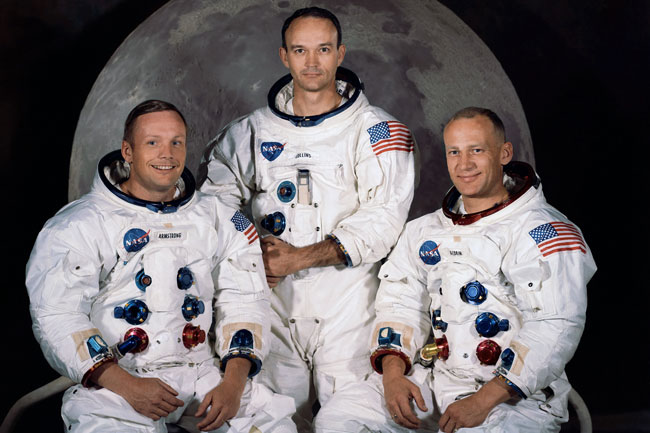55 years since first moon landing: NASA now hopes to extend Apollo’s legacy
July 20, 2024 12:40 pm
As the world on Saturday marks the 55th anniversary of the historic Apollo 11 Moon landing, hopes are high that another giant leap in lunar exploration is fast approaching.
A new global race to return the Moon is gathering pace but now space agencies want to do more than merely visit.
Unlike the Apollo programme, which was discontinued due to high costs, future missions are expected to benefit from advancements in technology, international partnerships and private sector involvement making them economically viable.
It is hoped these efforts could lead to permanent lunar bases and infrastructure that will support sustainable exploration and scientific research.
Gateway to the future
Salem Al Marri, director general of the Mohammed Bin Rashid Space Centre, told The National he hopes to see astronauts “thriving on the surface of the Moon” in the next few decades.
“We’ve got to look at the last 25 years of what human spaceflight has been and that’s really been sustainable presence on the International Space Station,” he said.
“If we take that model, apply it to the Moon and fast forward 20 years in advance – that’s what I think we would be seeing at some point – maybe even in the shorter term with the Gateway being built.”
The Apollo programme, which ran from 1961 to 1972, successfully landed 12 astronauts on the Moon for short-duration missions, but no human has been back since.
Nasa now hopes to extend Apollo’s legacy by building a permanent human base through its Artemis programme and the Gateway, a Moon-orbiting station.
The agency is using the help of international partners, such as the UAE, and private companies like SpaceX and Blue Origin, to make these missions a reality.
The UAE is supplying a crucial part of the Gateway and will get to send one of its astronauts to the Moon in exchange.
“Fifty-five years since Apollo 11 landed, that was a pivotal moment in human history,” said Mr Al Marri.
“We as humans haven’t been back there [since] – I think that also poses a strong question of do we need to get back there?
“And that’s really why there’s now a renewed push globally to get back to the Moon, whether it’s with the government programmes, like Artemis, that the UAE is part of as well, or through private missions.”
Nasa beat the Soviets in the space race by landing the first man on the Moon in 1969, a monumental achievement that showcased US technological prowess.
Funding for lunar missions was more accessible due to the intense Cold War rivalry with the Soviets, which fuelled a sense of urgency and national pride in beating them to the Moon.
Space rivalries renewed
This geopolitical competition ensured substantial financial and political support for Nasa.
Today, the agency faces a new rival in China, which has rapidly advanced its space programme with successful missions using the Chang’e lunar landers and the Tianwen Mars rover.
China’s ambitious plans include establishing a lunar research station by the 2030s, positioning itself as a formidable competitor in the quest for lunar dominance.
As Nasa competes with China to land humans on the Moon again, it is grappling with budget constraints for the Artemis programme, as the US Congress has been hesitant to approve the necessary financing.
It does not help Nasa’s case that the Space Launch System (SLS) rocket, which is central to the Artemis missions, has faced criticism for its high development costs.
Dimitra Atri, an astrophysicist at New York University Abu Dhabi, said the involvement of private companies could help make Artemis a reality.
“One difference is that a number of private companies are involved this time round and they might attract funding from private investors and other governments from around the globe,” he said.
“For example, SpaceX launches spacecraft from private companies and other governments, which is a significant source of funding for them.
“The sustainability of Artemis also depends on how sustainable the Chinese lunar programme is because both programmes are extremely expensive and are of high strategic importance to both countries.”
But some missions that could have paved the way for the Artemis programme have already been cancelled by Nasa because of high costs.
On Wednesday, the agency announced it was cancelling its $450 million Viper (Volatiles Investigating Polar Exploration Rover) project due to budget concerns.
The rover would have spent 100 days scouting for lunar ice deposits near the Moon’s south pole, which is where future Artemis missions are expected to touch down.
Source: The National
--Agencies











